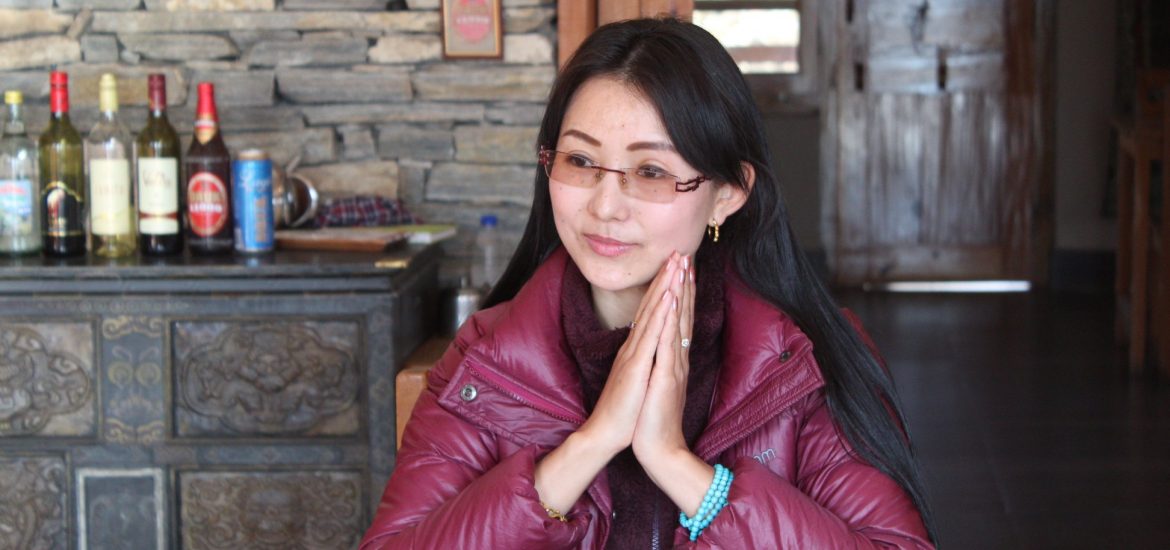The Vajrayana tradition across the Himalayas is largely led by men: The titles are replete with words many of us are familiar with: Rinpoche, Lama, Khenpo, and more. But from Bhutan to Nepal, the wives, mothers, sisters, and daughters of Rinpoches play an outsize role compared to their public profile. They participate at the very head of certain public rituals, direct festive schedules and manage community calendars, and advise their husbands, fathers, and brothers.
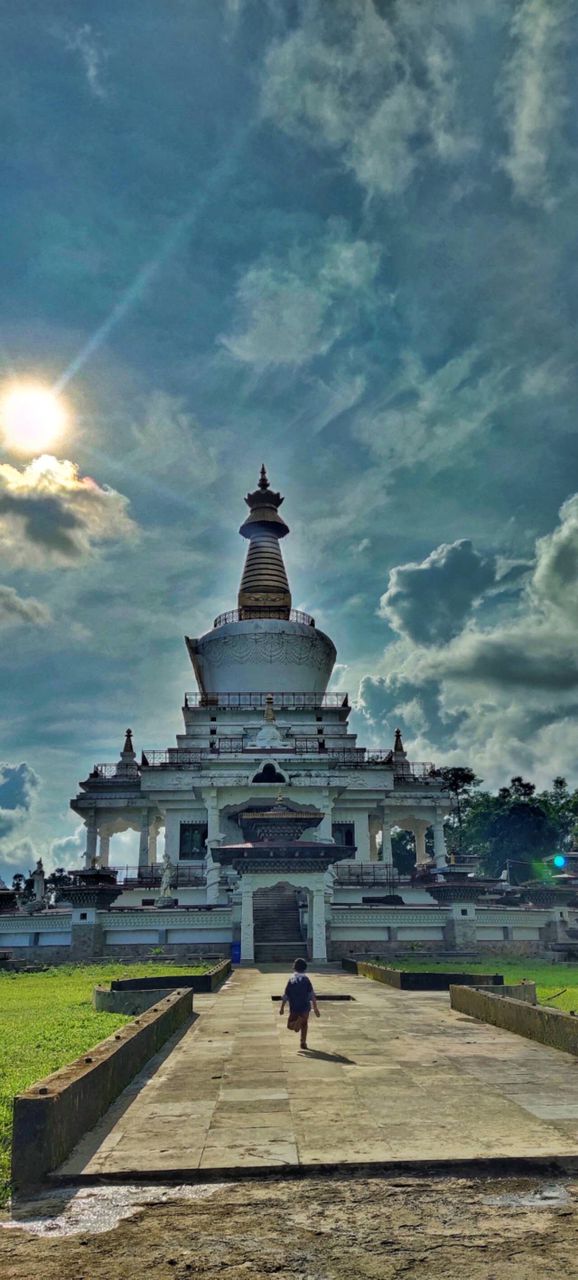
Pema Yangchen is somewhat lesser-known compared to more prominent counterparts, but she is an excellent example of a “Dharma heiress” who does plenty of important work in her spiritual community. She was born into a humble family that is affiliated with the Pedling lineage. Her root master is His Holiness Gangteng Rinpoche, the current head of Nyingma lineage in Bhutan.
She has received many teachings and empowerments from a range of masters, many of them whose names are familiar: His Holiness the Dalai Lama, Dzongsar Khyentse Rinpoche, His Holiness the Je Khenpo, His Holiness the Karmapa, Gangteng Rinpoche, and Sungtrul Rinpoche.
“I feel so fortunate to have received all oral transmissions and initiations from all great master who are highly qualified,” she told me.
The Pedling lineage stems from the Bhutanese Pema Lingpa, who encouraged people to follow the original Nyingma school of Tibet. Her brother, Khenpo Yonten Phuntsho Rinpoche, is the principal of Drodul Phendey Ling Shedra. Her father, Ven. Lama Tshewang Dorji Rinpoche is the founder of Drodul Phendey Ling Foundation. They are both religious leaders who have the responsibilities of guiding monks at the monastery of Ugyen Dongak Shedrup Dargye Ling.
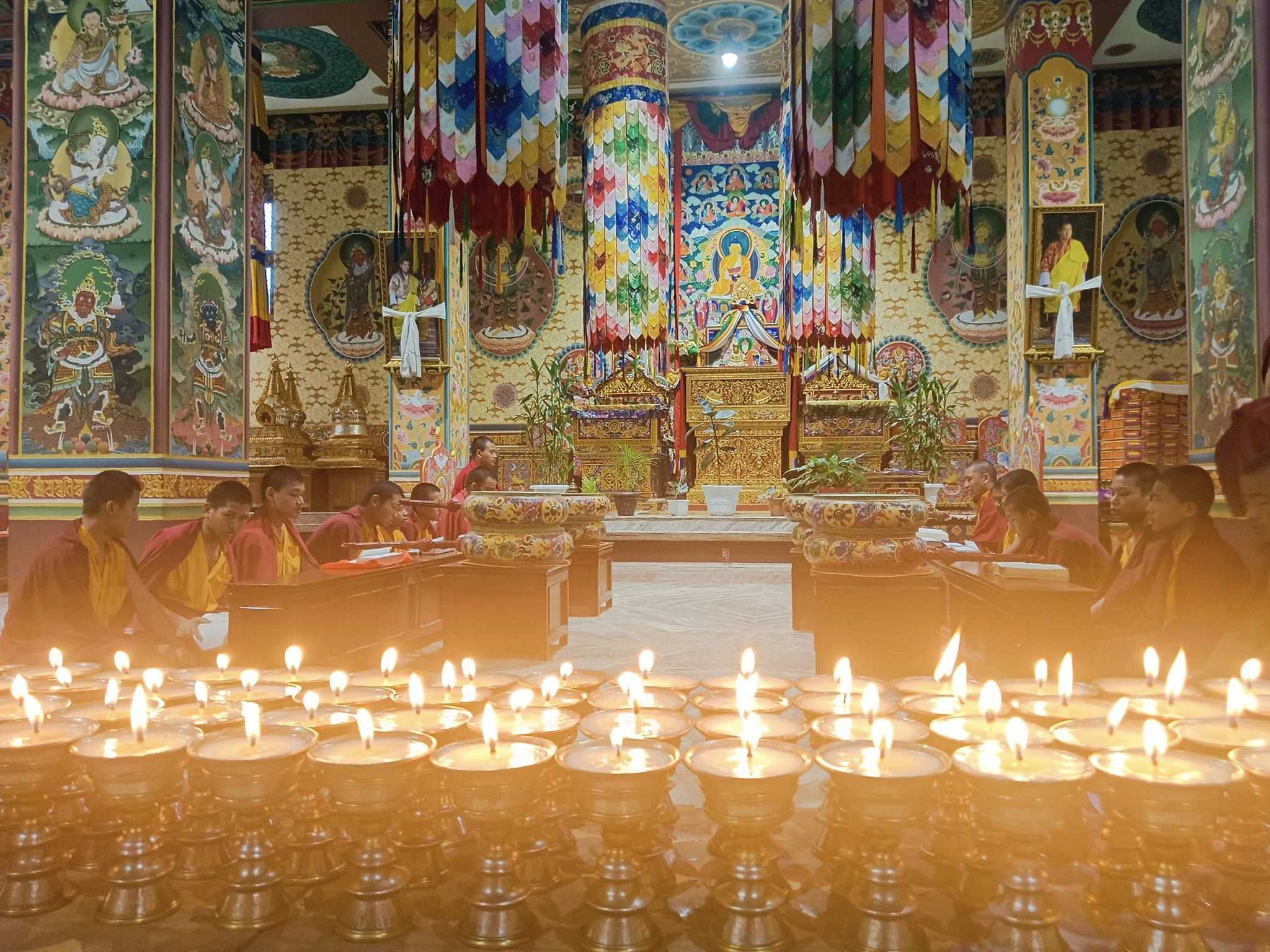
Before she took up her current responsibilities, Pema was a young girl who went to France with her parents in 2002. “I ended up living there for almost half of my life, 15 years,” she told me. “France is a very beautiful country and I was privileged to experience its rich culture. From an early age, I was able to open my mind to a very different country from Bhutan and learn about diverse cultures and mentalities. I find many big differences between Eastern and Western mindsets. This can be the basis of misunderstandings, but it can also be an inspiring meeting of cultures.” Fluent in French, she studied the language at school with other students from 2003 until 2012. “I have always had good memories wherever I go. Maybe I see everything in a positive light.”
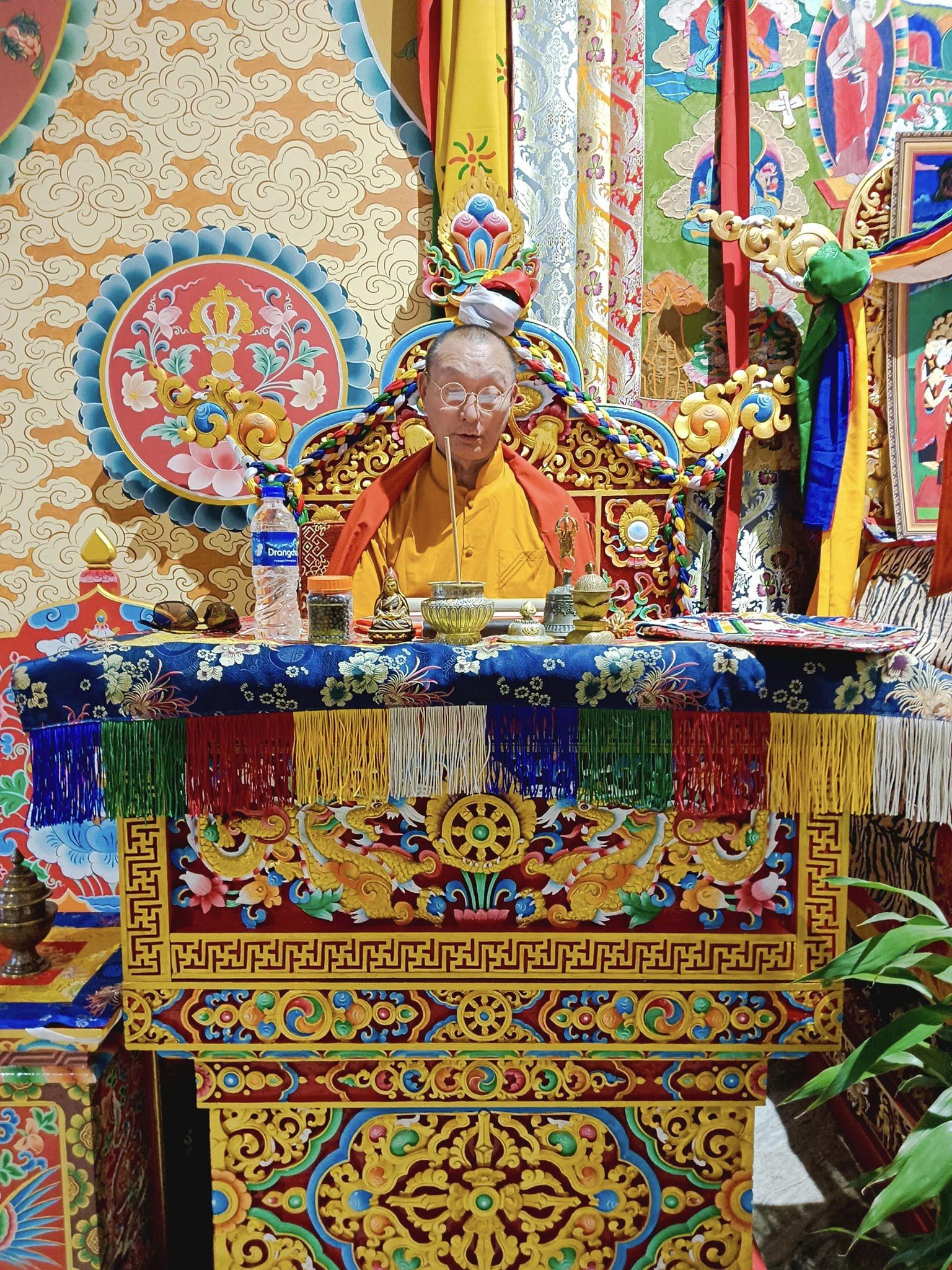
Pema is a wife and mother with the added responsibility of carrying out rituals and looking after the monks. “I rally support for the primary needs of monks and teachers, such as clothes, food and stationery. Once every two months we do the tsog offering for Guru Rinpoche Day, and another offering for Dakini Day.” Like many Bhutanese professionals, she is also involved in the tourist industry with her own tour company.
In 2016, she founded a small association called Drodul Phendey Ling Tsobum Tshogpa. This is translated as “Ganachakra offerings for World Peace.” We have more than 100 interested people from the local area participating. We launched this event in 2017 and have been doing it every year. We dedicate all our virtuous actions and offerings to all beings, who have each been our mothers at some point in our past lives. This is a popular method for the accumulation of merits in Bhutan.” She is also close to her brother, and together, they have been working on building a school for monks and teachers.
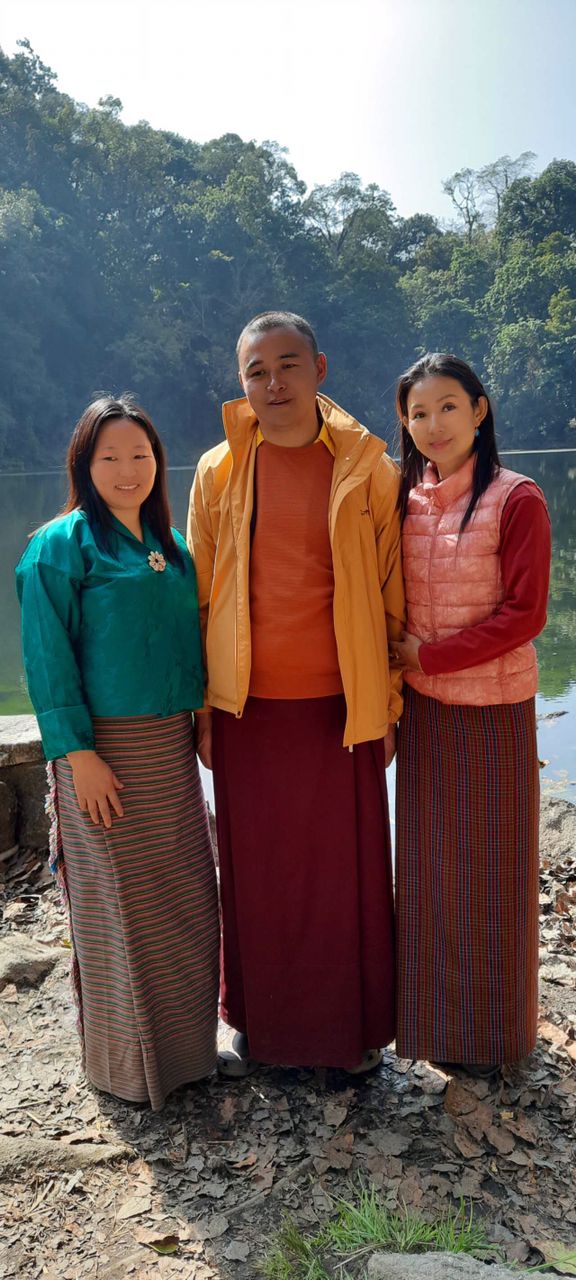
“Finally, I am engaged with the project of Great Stupa for World Peace which my beloved respected father is undertaking. Almost 90 per cent is completed and the remaining 10 per cent is to be done, including the statues and thangka paintings. At the moment, our works have temporarily stopped due to post-COVID issues, including a lack of funding.”
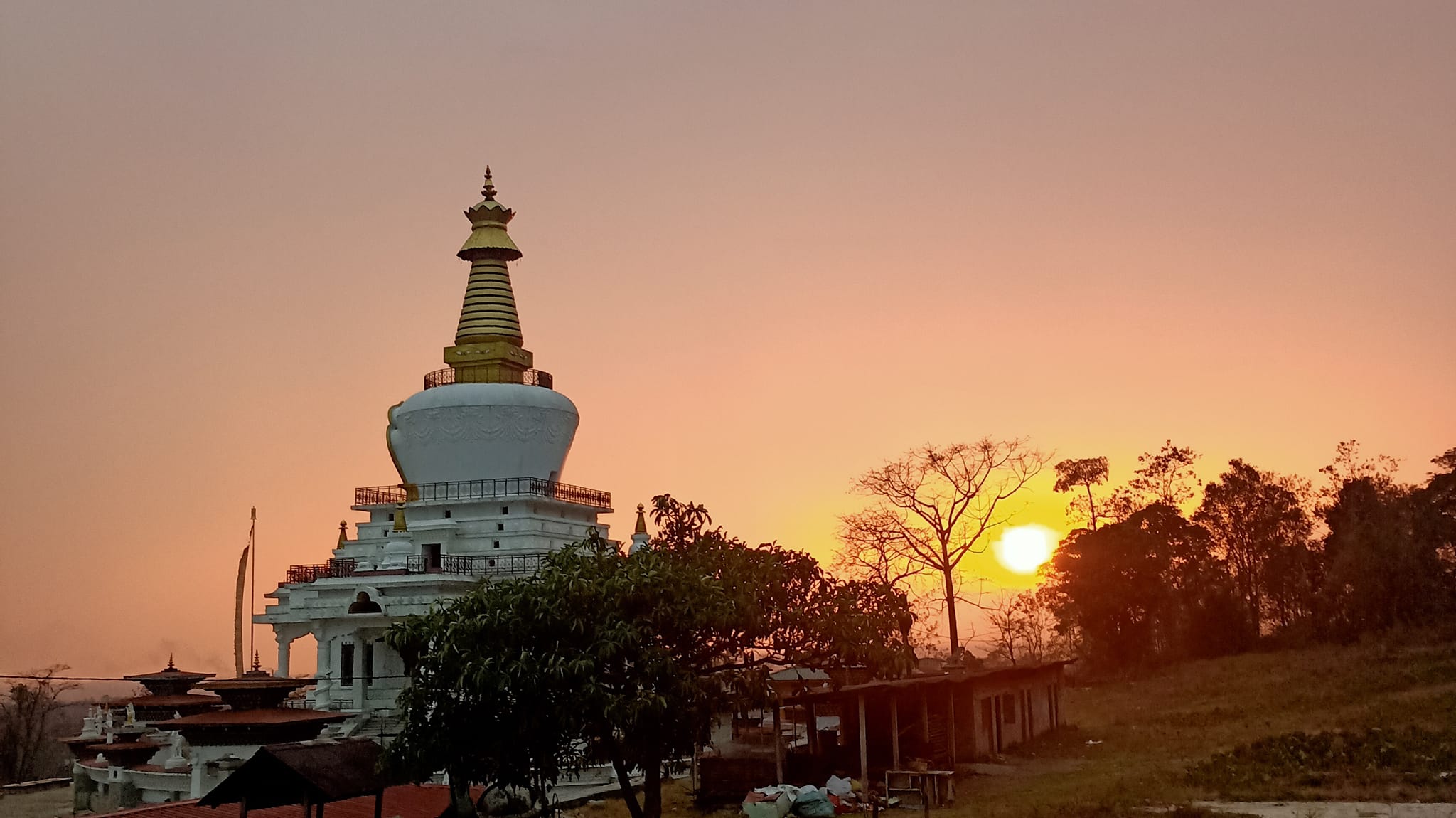
Nevertheless, Pema is hopeful that this meritorious project of her dreams will be completed in the coming couple of years. She remains confident and assured in her identity and approach to her responsibilities. “I could not be more grateful to have been born into this life, into this body,” she said. “You could say I am happy about so much, and do my best to look forward to happy things in the future. I think this is worth trying, even if we are facing many difficulties at present.”
Related blog posts from BDG
The Bodhi Stupa in Gelephu, Bhutan: A To-Be-Completed Structure of Beauty and Compassion

